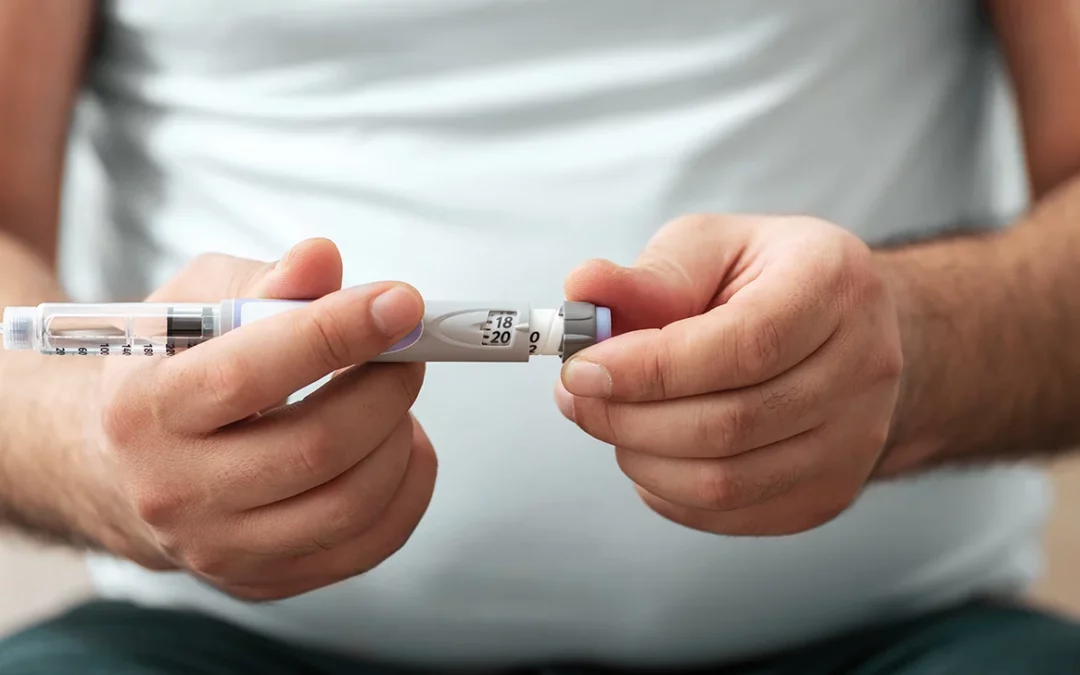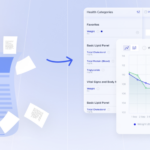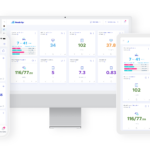Glucagon-like peptide-1 receptor agonists, more commonly known as GLP-1 medications are a class of drugs originally developed in 2005 for the treatment of type 2 diabetes. They are also now used to treat obesity, as weight loss is a side effect of taking these medications.
There are several different types of GLP-1 medications, but Semaglutide (Ozempic®/Wegovy®) or Trizepatide (Mounjaro®) may be the most familiar brand names.
How do GLP-1 medications work?
GLP-1 medications act similarly to a natural hormone called GLP-1. This hormone is made in the small intestine. It plays several important roles in the metabolism of food and the regulation of blood sugar.
In the body, GLP-1 is responsible for:
- Slowing down stomach emptying to control how fast glucose (sugar) enters the bloodstream after a meal
- Impacting areas of the brain that trigger fullness, so you feel satisfied after meals
- Triggering the release of insulin, a hormone that helps lower blood sugar after meals
- Stopping the release of glucagon, a hormone that raises blood sugar
GLP-1 medications act like the natural form of the GLP-1 hormone in the body. The medication binds to receptors that are also triggered by the GLP-1 hormone, resulting in lower blood sugar and an increased feeling of fullness after meals.
GLP-1 and Blood Sugar
GLP-1 medication helps regulate blood sugar after meals due to the effect it has on insulin and glucagon, particularly important for those with type 2 diabetes. Slowing down digestion after a meal also allows your body to process the glucose in your food at a slower pace, preventing spikes in blood sugar.
GLP-1 and Weight Loss
GLP-1 medication promotes weight loss by increasing satiety, or the feeling of fullness after meals, so you eat fewer calories. It also slows down the movement of food through the stomach, so you eat less at your next meal.
Many users report that GLP-1 medications also reduce cravings and “food noise”. It is currently unclear how this medication does this but is likely due to the impact it has on areas of the brain connected to rewards and motivation.
Controlling blood sugar spikes also helps reduce body weight. Dysregulated blood glucose, even if not at diabetic levels, makes weight loss more difficult. The ability of GLP-1 medications to help regulate glucose may be another reason they help with weight loss.
Most GLP-1 medications are currently being used off-label to help treat obesity. But, in June of 2021, the FDA approved Semaglutide (Wegovy®) and Liraglutide (Saxenda®) for weight loss. More of these medications are expected to be approved for weight loss, due to the popularity and effectiveness of these drugs.
References:
- Shaefer, C. F., Jr, Kushner, P., & Aguilar, R. (2015). User’s guide to mechanism of action and clinical use of GLP-1 receptor agonists. Postgraduate Medicine, 127(8), 818–826.
- Müller, T. D., Finan, B., Bloom, S. R., et al. (2019). Glucagon-like peptide 1 (GLP-1). Molecular Metabolism, 30, 72–130.
- Williams, D. L. (2010). Expecting to eat: glucagon-like peptide-1 and the anticipation of meals [Review of Expecting to eat: glucagon-like peptide-1 and the anticipation of meals]. Endocrinology, 151(2), 445–447.
- Blum, D. (2023, June 21). People on Drugs Like Ozempic Say Their “Food Noise” Has Disappeared. The New York Times. https://www.nytimes.com/2023/06/21/well/eat/ozempic-food-noise.html



















